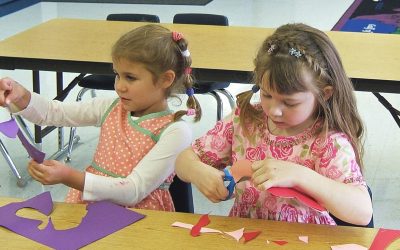Language and communication are foundational to learning, and words are the building blocks for constructing knowledge. Young children love the sounds of new, tongue-tingling, or BIG words. Sometimes, the BIGGER, the better! They also like to try out intriguing words—especially ones that make them giggle.
For example, types of dinosaurs (daemonosaurus, iguanacollossus, or skorpiovenator) or plants (elephant-foot yam, venus flytrap, sneezewort yarrow) can be especially fun to say. And, even more fun to learn about!
Parents can help children extend their vocabulary, share ideas, and enjoy learning activities that spring from greater awareness and understanding of words that are interesting, hefty, or unusual. There’s nothing wrong with saying “laugh” but saying “gigantic belly-laugh” is SO much more expressive! Let’s explore the richness of words, and how to encourage children’s appreciation and use of them.
SIMPLICITY vs COMPLEXITY
“Simplicity is the glory of expression.”
~ Walt Whitman (poet)
Simplicity makes good sense. Why complicate matters? Isn’t it better to refer to something clearly and explicitly, making it easy to comprehend rather than complicated?
Yes. And no.
Yes, because we want children to be able to grasp concepts and understand the basic meanings of words we use to communicate. No, because simplification can be belittling, boring, and short-circuit motivation. The ideal is to find that sweet spot whereby children comprehend something and experience the urge to extend it to the next level. This is often referred to as the Zone of Proximal Development. The ZPD is that space wherein the learning experience is challenging enough to be interesting and familiar enough to be mastered with some help.








